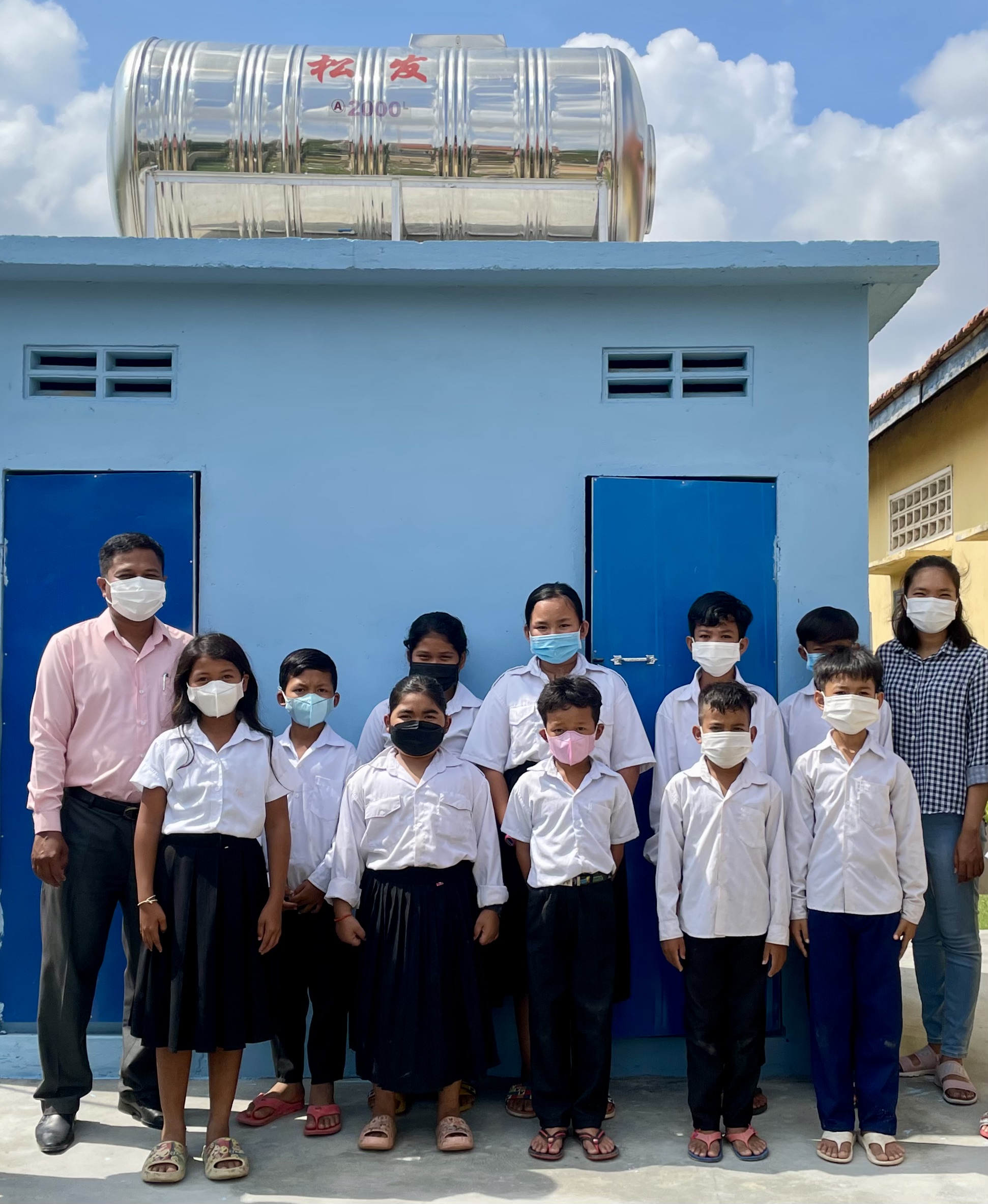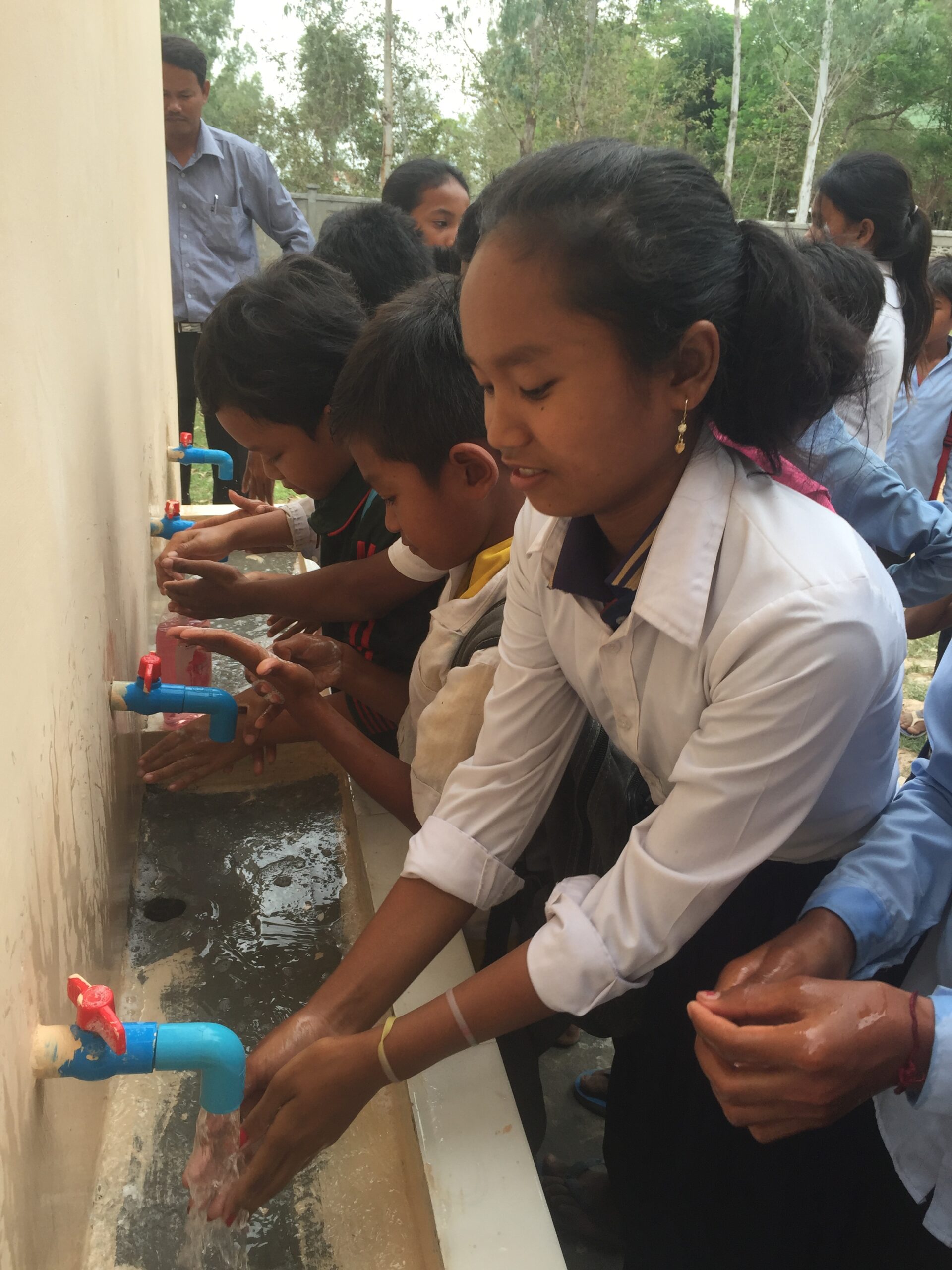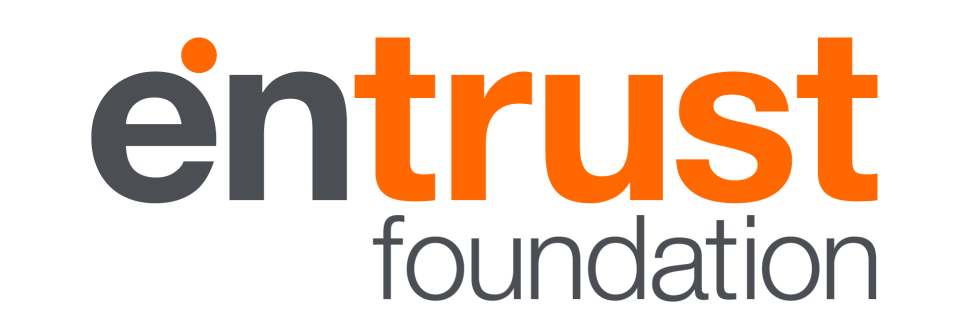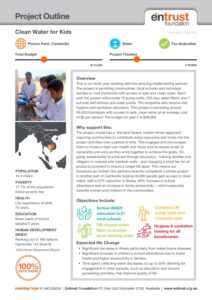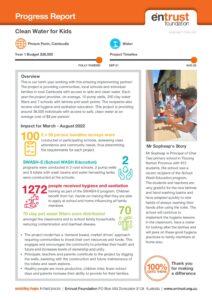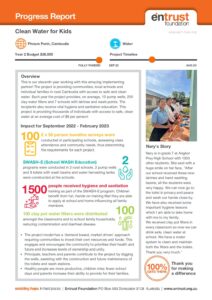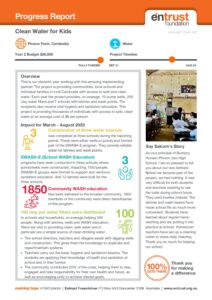Clean Water for Kids - Year 2
Code:
KHM-MET-CWK-P02
Country:
CambodiaCause:
Water & SanitationPopulation:
16.9 MillionHuman Dev Index:
#146 (Aus #5)Sep 23
Overview
This is our tenth year working with this amazing implementing partner! The project is providing communities, local schools and individual families in rural Cambodia with access to safe and clean water. Each year the project will provide 10 pump wells, 250 clay water filters, and 7 schools with latrines and wash points. The recipients also receive vital hygiene and sanitation education. This project is providing around 38,000 individuals with access to safe, clean water at an average cost of $3 per person!
Why support this
The project model has a "demand based, market driven approach" requiring communities to contribute some resources and funds into the project activities over a period of time. This engages and encourages them to invest in their own health and future and increases levels of ownership and unity as they work together to achieve the goals. On- going sustainability is achieved through education - training families and villagers to oversee and maintain wells - and charging a small fee for all products provided to ensure a longer life span. This means our donations go further! Our partners recently completed a similar project in another part of Cambodia helping 40,000 people gain access to clean water, with a 67% reduction in illness, 80% increase in school attendance and an increase in family productivity – which especially benefits women and children in the communities.
Budget
$38,000 for year 2 of a 3yr project. Total Budget $114,000.
Objectives Include
- School WASH education in 21 rural schools
- 750 claypot water filters to provide clean drinking water
- Construct 30 pump wells and concrete wells
- Hygiene & sanitation training for all beneficiaries
Expected Life Change
- Significant decrease in illness particularly from water-borne diseases Significant increase in children’s school attendance due to better health and higher productivity in families
- Time spent collecting water decreases by up to 50% allowing for engagement in other pursuits, such as education and income generating activities, that improve quality of life
